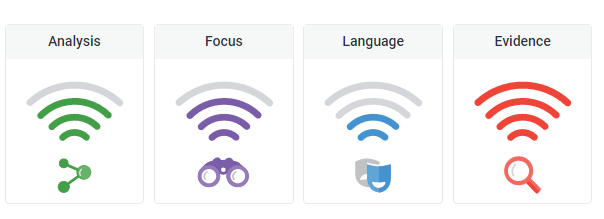 When the first school
When the first school guidance counselors (update: thanks to those in the profession who took the time to educate me on their title) emerged in the late 1800’s, they were almost exclusively vocational counselors, their purpose to assist students in transitioning from an educational environment to a productive piece of society. Quickly, this morphed to helping students determine the career path best-suited for their innate abilities, interests, and skills. It didn’t take long for those in the trenches to connect student success after school to the path followed during school–which included much more than grades. Counselors took on myriad tasks, such as:
- helping failing students find a remedy
- encouraging teachers to make connections between what they taught and occupational problems
- consulting student standardized tests to determine what should/could be expected of students
- urging students to stay in school
- interviewing students leaving school to validate their decision
- promoting character development
- teaching socially appropriate behavior
- assisting vocational planning
- promoting best practices in academic development (readiness to learn and achievement strategies)
- encouraging career development and planning (academic advising, school to post secondary or career transitions, and workforce effectiveness)
- ensuring appropriate social skills and self-management as well as facing challenges to school success including bullying, suicide, addictions, and abuse
- providing connectedness to school, community, state and nation
- helping students understand societal events such as Sandy Hill and Hurricane Katrina
By the 1990s, the functions of school counselors seemed to be settled science (according to Norman Gysbers). Their job was full-time rather than part-time paper-pushing. They were responsible for the whole child, not just their future vocation. The focus had moved to individual competencies rather than deficiencies. These responsibilities were accomplished via a team approach with all other stakeholders, the counselor expected to vertically integrate their job with those above and below them in the educational hierarchy.
In short, these professionals were tasked with the mental and psychological well-being of teenagers wending their way through the greatest change period of their lives-from child to adult.
When NCLB’s five primary goals (three predictably addressing curriculum and achievement) included two that referred to school climate, affective development, and the opportunity to graduate from high school, nothing seemed settled anymore. Really, is anyone surprised, given today’s educational environ, that counselor duties are expanding to encompass not just the child, but the families and community, in topics that well-exceed the traditional such as:
- cyber-bullying
- sexting
- the student’s online footprint
- online college and career applications
- high-tech applications for college and jobs, including videos, interactive CVs
- online resources for parents to use outside of school as well as during
- the openness of student sexual preferences
- the changing education environ–less authoritative and more teamwork
- problem-solving–any problem–that transcends the academic and encompasses food, money, friends, and more
- the need at times to simply be a friend–does it surprise anyone that some students just need that person who has the student’s best interests in mind and not some visceral personal agenda that has no thought to what serves the student
- an open door–always be available. Don’t be backed up with data entry, writing reports, filling out forms, attending meetings. Put the student first.
Besides the complexity of the topics above and despite (or because of) what The Hechinger Report cites as an average caseload of 471 students per counselor, other problems face these non-teaching professionals:
- support from the schools
- enough time in their day
- tech training–school guidance counseling, like every other corner of education, is a lot techier than it used to be. The professionals doing these jobs need PD to keep up.
- training to stay on top of legislative guidelines and changes that affect schools, students, parents
Some skills never change. The best school counselors tomorrow will have the same qualities that made their predecessors great, namely: a depth of knowledge in her/his field, the ability to deal with frantic adolescent questions, the writing skills to compose recommendation letters that sound authentic and honest, the moral code to never sugar coat what must be said and never–NEVER–lie, the natural enthusiasm for students that means s/he is always genuinely happy to see them and always willing to answer questions, and the organization to know each student’s name as well as what they’re passionate about (classes, college applications, hobbies, etc.). Truth, those type of critical skills apply to teachers, too.
During National School Counseling Week–Feb. 3rd-7th–take ten minutes to drop by your school counselor’s office and say ‘thank you’ for the part they play in each child’s future.
–First published on TeachHUB
Jacqui Murray has been teaching K-18 technology for 30 years. She is the editor/author of over a hundred tech ed resources including a K-12 technology curriculum, K-8 keyboard curriculum, K-8 Digital Citizenship curriculum. She is an adjunct professor in tech ed, Master Teacher, webmaster for four blogs, an Amazon Vine Voice, CSTA presentation reviewer, freelance journalist on tech ed topics, contributor to NEA Today, and author of the tech thrillers, To Hunt a Sub and Twenty-four Days. You can find her resources at Structured Learning.




































Professional school counselors are no longer referred to as “guidance” counselors. That title does not reflect the 48-60 credit hour master’s degree requirement, mental health training, or the evolution of the profession. Many states have taken legislative approaches to have the term removed from all board of education documents. While your intent is appreciated, it would be wonderful if you could edit your post and take out the term “guidance” to accurately portray our title and our current role.
I apologize. The juxtaposition of ‘modernize’ and ‘school guidance counselor’ clearly didn’t work, to show the old title that needs updating. Should the phrasing be ‘Modernizing the School Counselor’? Or ???
Jacqui,
Thank you so much for the wonderful article, having advocates like yourself in our corner as so wonderful! Just to echo Mary’s statement, we are recognized by the Department of Education and even the First Lady (Woohoo!) as Professional School Counselors. Essentially we have eliminated the phrase “guidance” from our title because it limits our message of shifting the paradigm of what counselors do and how beneficial their programs can be. It may seem like using the two titles above interchangeably has little influence on ones professional abilities. The problem is that the perceptions of what many people have of what a Guidance Counselor is…and it certainly is not a School Counselor. Guidance is only one part of our job. We prefer “School Counselors” because we are educational professionals who do much more and provide services and actions that align with our district’s mission and goals. We believe that a title change can help us better promote our shift in profession to a more proactive approach with students, teachers, admins, parents and community members. Thank you again for writing a great article and I thank you also for making the changing to just school counselor.
I appreciate the time you took to explain this-all to me, Chris. I’ve adjusted the title as well as interior references. I have utmost respect for the job you-all do for students. I was fascinated to read your evolution as I did the research.